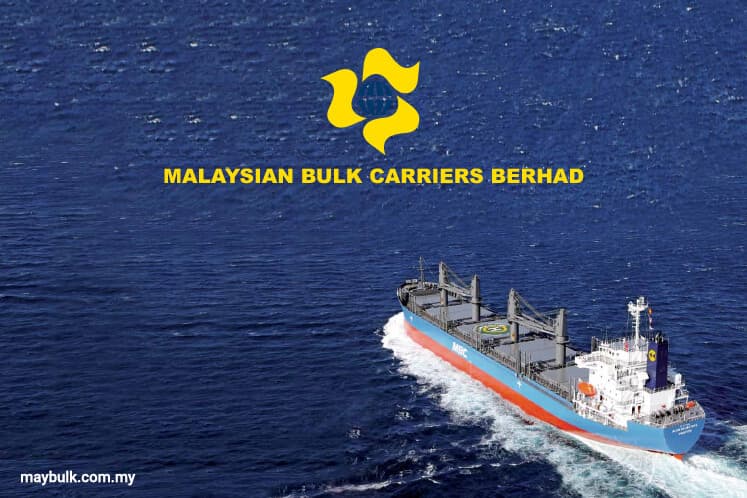
This article first appeared in The Edge Financial Daily on May 15, 2018
KUALA LUMPUR: Malaysian Bulk Carriers Bhd (Maybulk), controlled by tycoon Robert Kuok, is betting on China's rising demand for commodities to drive the dry bulk shipping market.
Its chief executive officer Hor Weng Yew said while a China-US trade war poses downside risks to the group, the group is not too worried about this as it believes world demand for staples such as grains and soybean, which largely come from China, will remain.
“There may be a knee-jerk reaction [if the trade war happens], not so much on the fundamentals, but more based on sentiment. Obviously during a trade war, there will be a holdback in purchasing of commodities,” he told The Edge Financial Daily in an interview.
Hor pointed out that China is also undertaking huge infrastructure programmes under the One Belt, One Road initiative, which ensures demand for raw materials to be shipped to the country.
“Frankly, even if there is a trade war between the US and China, we see that shipping will continue. It is just a question of to what extent is the disruption. People may react adversely during initial reactions,” he added.
For Maybulk, Hor said the group is taking a longer-term view and a broader approach to ensure its dry bulk shipping operations are sustainable in embracing the cycles of the business. To do this, it will focus on keeping operating cost tight, while maintaining the quality of its operations.
“Safety and operational excellence are important to us because we don’t want ships to break down [as it will incur extra costs]. More importantly, we don’t want to spoil our brand value to customers,” he added.
“We are taking a longer-term view to make sure our business is more sustainable. In shipping, you have to go through the cycles. When you are in a downturn, you make sure that you stay robust, your cash flow is strong, your ships are well utilised, your customers won’t run away and you continue to ride the cycle. Then when the market is up, you will reap some returns,” Hor noted.
Maybulk is currently undertaking a fleet renewal plan to further strengthen its core dry bulk shipping business as it exits the offshore services sector that was deemed to be unsustainable for the company.
In April, Maybulk proposed the disposal of its 21.23% stake in loss-making Singapore-listed PACC Offshore Services Holdings Ltd to shareholders of Maybulk at an offer price to be determined later, as it seeks to raise funds to strengthen its future operations in the dry bulk sector.
“It is part of our fundraising exercise because the focus of the group is very much on dry bulk shipping. We have also gone through a difficult market in the last couple of years,” Hor said.
He added that the group embarked on the renewal programme in 2016. Since then, Maybulk has divested all of its tankers used for offshore services, which was not part of its core business, as well as some ageing dry bulk carriers to improve efficiency.
Maybulk has a fleet of 15 dry bulk vessels, of which seven are wholly owned, two are owned via joint ventures and six are long-term chartered-in vessels.
“For the shipping business, it is very important that we have a strong core fleet. Some of the ships were getting old over the years, so we took the opportunity to dispose of them as part of our fleet renewal strategy,” said Hor.
Maybulk has contracted some new ships, which would take about two years to build.
Hor said it is expecting one ship to be delivered this year and another two next year.
“These are high specifications vessels that are environmentally friendly and the fuel consumption is very economical, which means that they can compete very well in the market,” he added.
Hor noted that the group boasts a high utilisation for its vessels at close to 98%, and he hopes to continue this with the new ships.
Maybulk has been loss-making since 2015. Yesterday, the group reported that its net loss for the first quarter ended March 31, 2018 (1QFY18) narrowed to RM14.34 million from RM33.21 million a year ago. Revenue was 16.5% lower at RM54.26 million in 1QFY18 from RM64.96 million in 1QFY17.
“I would say we have done reasonably well despite the market [slowdown],” said Hor.
On the outlook for dry bulk shipping charter rates in 2018, Hor said the market is improving from a low point in the first quarter of 2016.
“The dry bulk market was really at its trough in the first quarter of 2016, but we have seen the market slowly climbing back in 2017. I think the market still has some room to improve, coming off from a very low base,” he said, adding that the shipping business is very much dependent on the global trading environment.